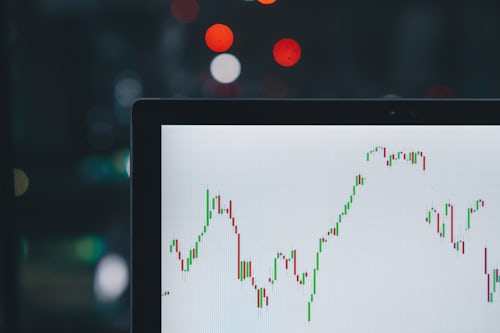There are several misconceptions about stocks. Knowing them will enable you to reliably avoid crucial mistakes when investing in stocks. Learn more about possible sources of error here.
1. it is always worth buying shares at rock bottom prices
After a slump in the stock market, for example due to significant negative events, many investors think now is the time to get in. All too often, this view leads to buying more or less indiscriminate stocks. Unfortunately, in many cases this leads to losses. Warren Buffet expressed this truth in his famous quote: Buying average companies is not worth it even at a great price. This is because a stock that has no potential for economic success is not a good investment, regardless of its price.
2. shares can save taxes
Since the introduction of the final withholding tax in 2009, not only dividends but also price gains are taxed regardless of the holding period. This means that investing in shares no longer offers any tax advantages over investing in fixed-income securities or savings. However, the flat tax rate of the final withholding tax of 25 percent plus solidarity surcharge and church tax, if applicable, is lower for many taxpayers than their average tax rate on other types of income. The savings allowance of 801 euros for single persons must also be taken into account.
3. successful investors bet everything on a few shares
This strategy is far too risky. Even as a private investor, you should always maintain a minimum level of diversification. For this reason, you should invest in at least eight to ten different stocks. These should be stocks in https://exnesslatam.com/cuenta-estandar/ that are as diverse as possible in terms of industry and their dependence on cyclical economic fluctuations.
4. in the long run one always makes profits with shares
Whether the acquisition of shares is worthwhile depends decisively on the time of purchase and sale. For example, many investors made massive losses who bought German stocks at the end of the 1990s and sold them again during the financial crisis in 2008 or shortly thereafter. A look at the historical development of the Japanese Nikkei index also illustrates this fact: It reached its highs at the end of the 1980s with a level of well over 30,000 points, which it has not come close to reaching again since then. On the other hand, there are also positive examples: Anyone who invested in the S&P 500 at its peak shortly before the outbreak of the financial crisis in 2008 doubled their money. Anyone who invests in a fundamentally sound company over the long term is more likely to make a profit.
5. because of the extraordinary return opportunities, credit financing of shares is worthwhile
The so-called leverage effect originates from corporate finance. It states that the highest possible level of debt increases the return on equity if the profits achievable from the business activity are higher in percentage terms than the interest on borrowed capital. This leverage effect occurs, for example, when the interest on debt is two percent and the return on sales is three percent. However, due to the high risks associated with investing in shares, you should never base your investments on this principle.



